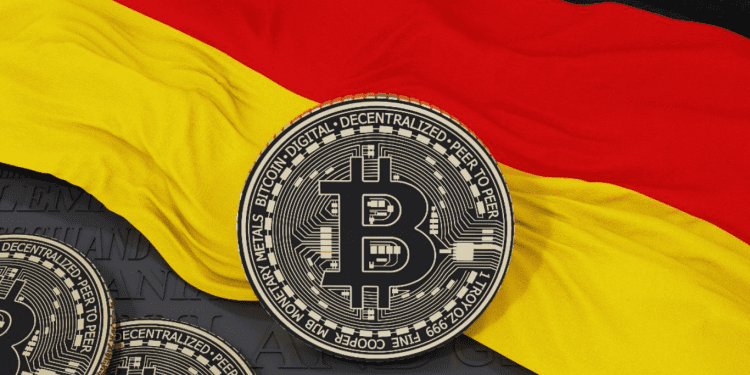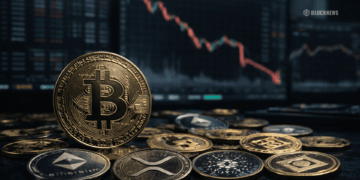- German Economy Officially Enters Recession as GDP Contracts in Successive Quarters.
- Mixed Reactions Within Crypto Community on the Potential Impact of Germany’s Recession.
- Uncertainty Looms for Bitcoin and Crypto in Germany as the Country Grapples with Economic Downturn.
Germany, the economic engine of Europe, has officially entered a recession after the country’s household spending succumbed to the pressure of high inflation. Reuters reported that the German economy contracted by 0.3% in the first quarter of 2023, following a decline of 0.5% in the previous quarter, meeting the criteria for a recession.
This marks two successive quarters of contraction, the commonly accepted definition of a recession.
German Government and Economists Respond
According to Reuters reports, Finance Minister Christian Lindner commented on the recession, stating that the German economy was losing its growth potential compared to other highly developed economies. He stated:
“I don’t want Germany to play in a league in which we have to relegate ourselves to the last positions.”
He expressed his concerns about Germany’s position and referred to the forecasts of the International Monetary Fund, which predicted a recession in 2023 for Germany and Britain among European countries.
In an event in Berlin, Germany’s Economy Minister, Robert Habeck, attributed the recession to the nation’s previous heavy reliance on Russia for energy supply. While the growth forecasts are bleak, he expressed determination to fight their way out of the crisis. He stated:
“We’re fighting our way out of this crisis.”
Analysts and economists weighed in on the situation, highlighting various factors that contributed to the recession. Andreas Scheuerle, an analyst at DekaBank, emphasized that the German consumer had fallen to their knees under the weight of massive inflation, dragging the entire economy down. Household consumption declined by 1.2% after adjusting for price, seasonal, and calendar effects. Government spending decreased significantly, by 4.9%, during the same period.
Carsten Brzeski, ING’s global head of macro, pointed out that despite a rebound in industrial activity and positive contributions from trade, the warm winter weather and supply chain frictions were insufficient to lift the economy out of the recessionary danger zone.
Mixed Sentiments in the Crypto Community
Members of the crypto community have expressed diverse opinions regarding the impact of the recession on the crypto market. Some see it as a bullish sign for cryptocurrencies, while others believe it may not have the desired effect.
On Twitter, there were mixed reactions to the news. While the recession saddened some individuals, they still saw it as a positive signal for crypto. One user wrote:
“When we enter a Recession, people will GO with basic l NOT high volatile crypto. Insanity!”
A Reddit user speculated that lowering interest rates in Germany to stimulate the economy could lead to increased investment in cryptocurrencies and trigger a bull market. However, another Reddit user warned that all speculative markets would suffer in a recession.
Another user added:
“When recession hits, I doubt people will be willing to put their money into risky assets; people will want to save. Sure, some may realize crypto might be a better place to keep their money.”
However, they believed this situation could offer a substantial opportunity for individuals to engage in dollar-cost averaging, especially during times of utmost adversity.
Outlook for the Future
The question now is whether there will be any recovery in the second half of the year. Weak economic activity is expected due to a drop in purchasing power, thinned-out industrial order books, aggressive monetary policy tightening, and the anticipated slowdown of the U.S. economy. Key leading indicators in the manufacturing sector have shown a decline, indicating further challenges ahead.
Despite these circumstances, the German Bundesbank remains cautiously optimistic, expecting modest growth in the second quarter. They believe a rebound in the industrial sector will offset stagnating household consumption and a slump in construction.
The implications of the recession on the future of Bitcoin and crypto in Germany are uncertain. While some believe it could have a positive effect, others remain cautious. The potential lowering of interest rates and the possibility of increased investment in crypto may present opportunities for the crypto market. Still, the overall economic climate will likely shape its future trajectory.














